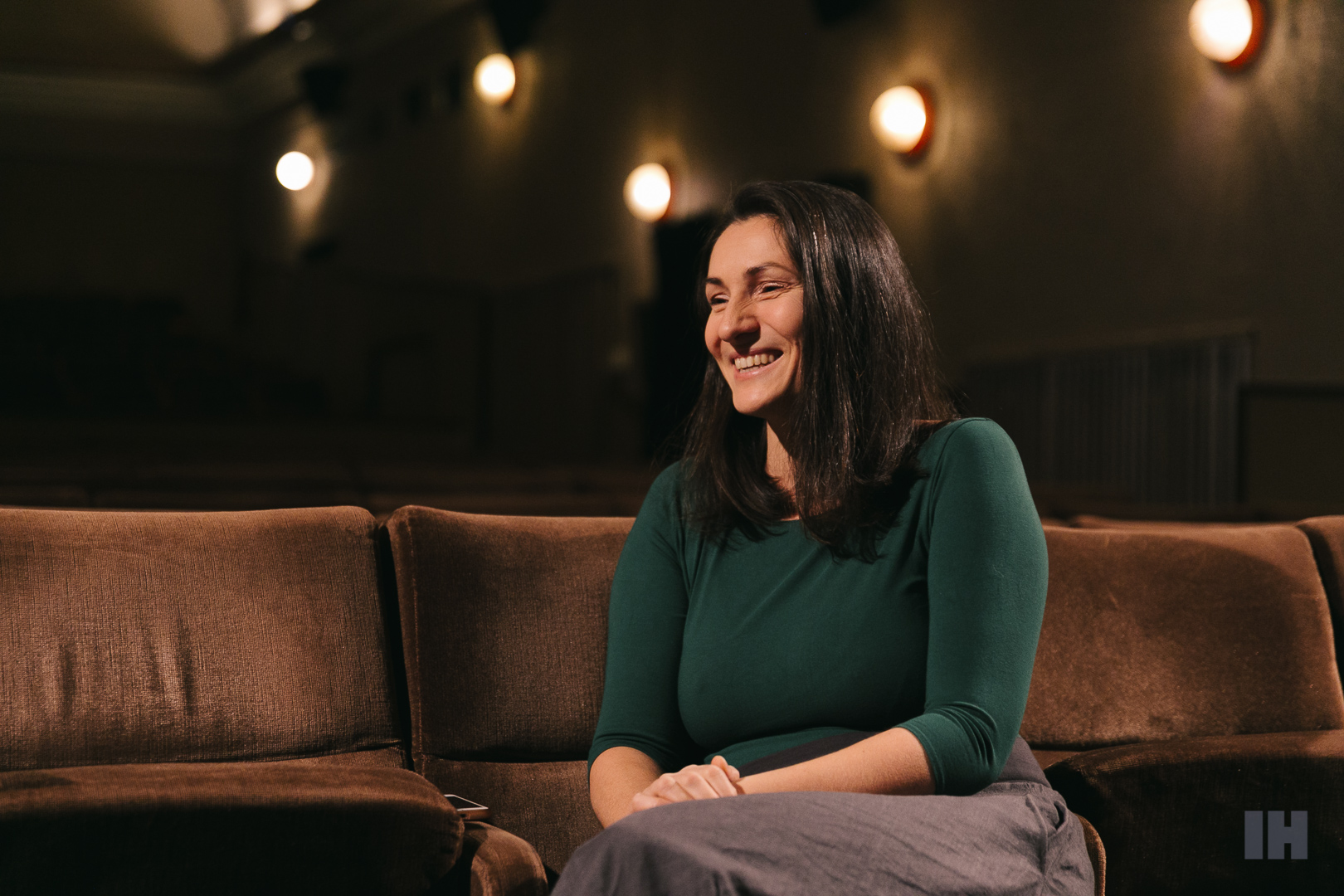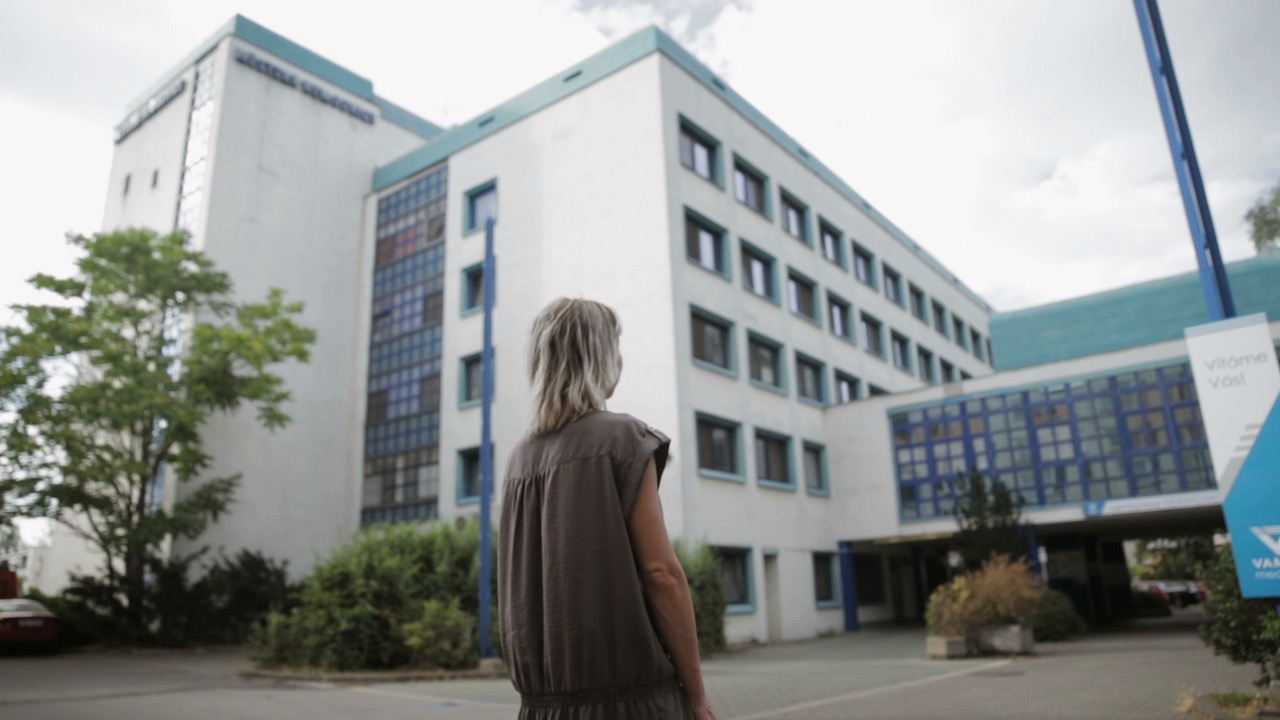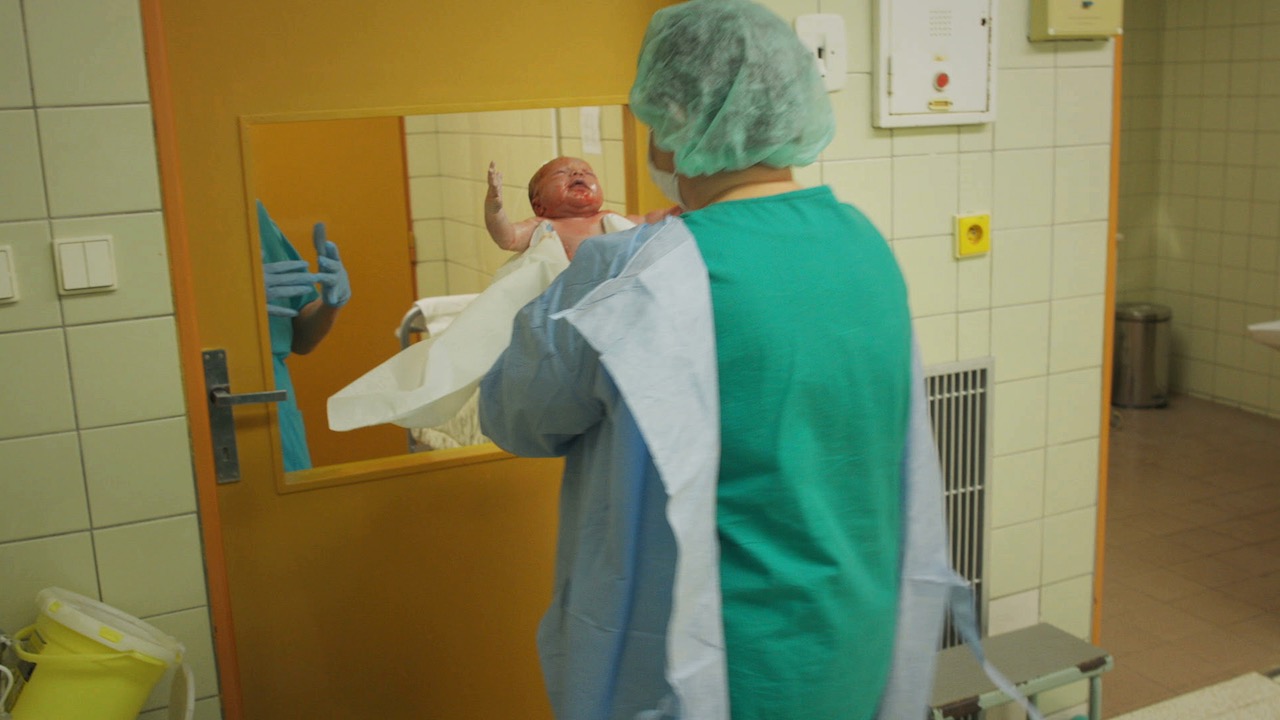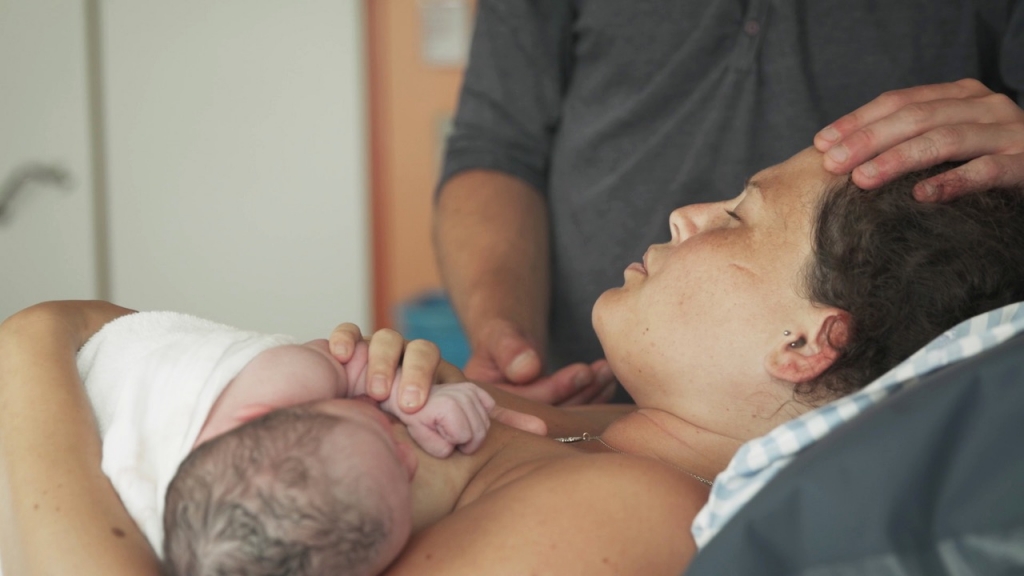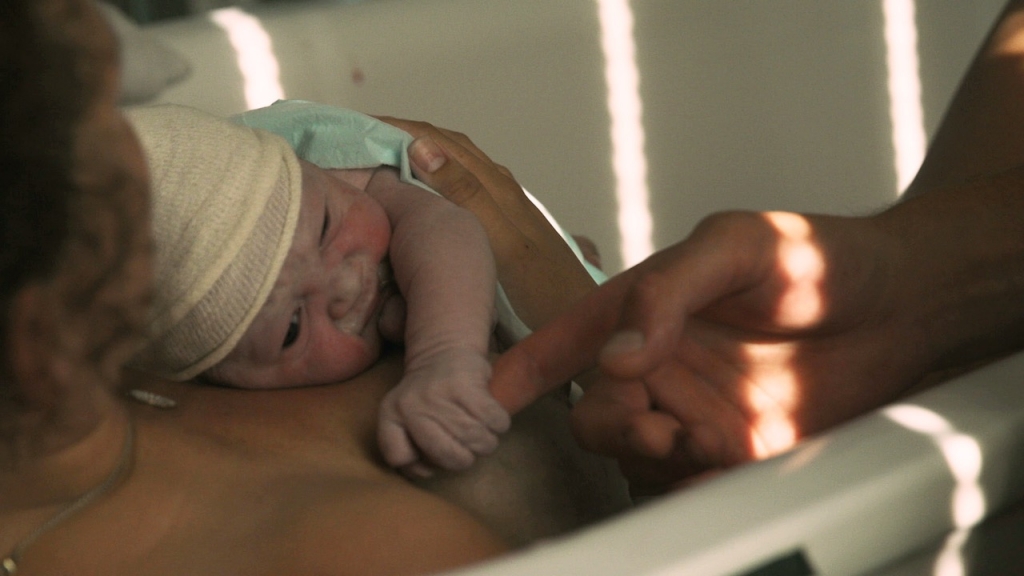Detailed depiction of the movie Unseen criticizes the violation of women’s rights in Slovak obstetrics. Meet its director Maia Martiniak
Maia Martiniak is the director of the new film Unseen (2020), which sensitively and at the same time thoroughly depicts the state of the Slovak obstetric system in relation to other foreign countries and their practices. This latest (and largest) work of hers subtly points to the traits of violation of mothers’ rights during the birth process, and the manipulation, intimidation and outdated methods, which are sometimes used in modern medicine, despite worldwide recommendations. On the occasion of the festival Jeden svet Košice, we talked to the director about the motivation to address this topic in a documentary film, her research and observation of obstetrics in several countries.
To stage or not to stage?
Maia Martiniak comes from Košice, even though she has lived in the capital for a long time now. The documentary filmmaker of a new film on obstetrics in Slovakia originally wanted to study political science and philosophy but ended up at the Faculty of Electrical Engineering and Informatics at the Technical University in Košice. During the process of her diploma thesis on the application of production planning techniques and industrial engineering in the field of services, she got into the creative industry, where she stayed in the production sphere for a long time – she participated in the creation of commercials, events and television shows.
After three years in Bratislava, she travelled to study in Sydney, where she started with photography for the first time. Her documentary style was also influenced by travel trips around Asia and South America or time spent in the Mongolian community. At the age of 31, Maia decided to try the entrance exams at the Academy of Performing Arts in Bratislava, where it was her photographs that ensured her the admission. During her studies, she became acquainted with various topics related to the position of women, which she portrayed in her student films Zuna, C50 and Morning of Butterflies. For her most extensive and thorough project, she decided to capture the controversial topic of obstetric practices in Slovakia and the Czech Republic. She tried to grasp the concept of childbirth trauma comprehensively, depicting practice from abroad and through the stories of experts from Denmark and the United States.
“Already at the first university, I encountered strange paradoxes and a stereotypical view of the position of female students in my field. Many felt that if a woman was studying at a technical school, all she had to do was put on a miniskirt and pass all the exams. However, the opposite was true. Even then, I saw that society believed more in common stereotypes than in the actual truth. Gradually, I observed it in everyday life and I think it also contributed to my view of the position of women in our society.
After returning from Sydney, I returned to production, but I missed creative thinking at work. I wanted to intervene more and more creatively in the projects, so I applied to study at the Academy of Performing Arts in Bratislava. The truth is that I was more attracted to the staged directing, but I subconsciously chose documentary production. Until then, I didn’t know anything about the genre as such, and I literally devoured the books on the entrance exams.
I think that the admissions committee was most interested in my photographs, which already said a lot about how I saw the world at that time. However, it was not easy for me to switch from a production chair to a director’s one – I had to free myself, forget about analytical thinking and find my own path in the creative process. It meant the ability to relax and immerse myself in a process that develops itself during filming, in harmony with my protagonists.
Within the documentary film, there are currently some tendencies to stage the story as well as the respondents in order to achieve the desired effect and vision of the director. But I try to let things flow. Sometimes it also involves filming seemingly unnecessary material, as it is only in the editing room that the individual dramaturgically key points are connected and create a very fascinating story. I have found out that I would never have filmed such moments even if I wanted to stage them on purpose.
In the film Unseen, I had a clear intention from the beginning. I knew what I wanted to shoot and what I should notice. I think this is extremely important for any project. To convey the topic to those who do not know it and through the medium as a film, they need to include the crucial details in a short time or at least have as such an idea of what is happening in the issue. My directing is scattered in the micro details that are mentioned in the film – in these almost microscopic situations, I tried to portray the violation of women’s rights in Slovak obstetrics system.”
So what rights are actually violated during childbirth?
According to the director, the movie was shot gradually, first in the Czech Republic, the United States, Slovakia and finishing in Denmark. Maia claims that she worked her way up to her respondents, and the aim of the film was not to compare individual countries but to show the problem of birth trauma comprehensively. To explain that this problem exists elsewhere, but the difference is how individual countries are able to deal with the problem. The film decently and subtly shows the moments during a woman’s birth, which deviate from the rights that every woman has during the labour. In addition, a woman during the birth process is not a patient, but in most cases a healthy woman who is nonetheless a human being. After more than seven years, the Unseen will soon enter the cinemas. What practices in the obstetric system will viewers be able to notice?
“Already during my bachelor’s film Zuna, I heard the stories of women who experienced the failure of the obstetric system on their own. At the same time, we have to look at childbirth as an existential event in a woman’s life, which affects her for life and she definitely has the right to go through it as beautifully as possible. For this to happen, we need to treat her and her process sensitively and with respect.
Every woman experiences her birth process individually, and this is something that has to be kept in mind. No woman is the same, and whilst one is stronger, the other one might get hurt. However, to be specific in the case of infringements, these are, in particular, the routine procedures that we maintain here as a tradition and have accepted as normal. These include limited access to water and food, forcing the woman to lie on her back, controlled breathing of a woman during childbirth, routine episiotomy, accelerating childbirth or medication without a woman’s consent, intimidation or manipulation, separation of a woman and her newborn just after childbirth, and others.
Currently, I am most saddened that we break the early contact between a mother and her baby, despite the scientific evidence that the mother and her newborn should stay together undisturbed for at least two hours. Undisturbed means not taking the child anywhere or keeping away from the mother. Swedish perinatal neuroscientist Nils Bergman is working on research that proves that it harms the newborn and creates toxic stress, which is experienced at the level of the body and affects him throughout his life.
Instead, the newborn baby should be immediately placed naked on the mother’s bare skin, where the mother and her baby are given the opportunity to strengthen the relationship and there are spontaneous processes of falling in love, self-attachment, and support for the spontaneous birth of the placenta. All examinations of the newborn, unless there are signs of life failure, can and should be performed on the mother’s body. Information such as the baby’s weight and height can be recorded two hours after birth and does not affect the baby’s health. We should be all more aware of this as we are facing a pandemic since the most we can give a woman and her child is health. In particular, mental health helps us to deal with such difficult life situations as fatal diseases or other serious life situations.
But to return to routine procedures – I experienced how a midwife supported a woman to drink in a Danish maternity hospital, or during a break she had a modest snack, which she brought her. If we realize that a woman can be in the process of childbirth for more than twelve hours and we prevent her from accessing water and food, it is nothing else but abuse and unnecessary exhaustion. Even if you offer a woman water during childbirth, she will not drink half a bottle, but only drinks a sip or two. Her situation does not worsen and she can thus focus on the birth process.
The same goes for the position on the back only. It is exhausting to give birth in a position where the birth canals are directed against gravity, and this is not even recommended. This includes back position, semi-lying, and semi-sitting. It is the midwife who should actively support the woman in other positions; standing, kneeling or sitting as her body guides her. The baby, in this way, has enough space to rotate in the birth canal and be born spontaneously, due to gravity.
Other methods or processes include routine episiotomy or Kristeller maneuver. These practices are no longer recommended today by the World Health Organization and many other experts. In Slovakia, however, it often happens that a woman in childbirth, even in the most vulnerable state, does not even have a chance to intervene in what is done with her body. Even a direct rejection of these practices is sometimes disregarded, and even more so, women are intimidated and manipulated by the words: ‘that they want to kill their child’. We are talking about a form of manipulation of a mother who, in a state of incredible stress and pain, is under pressure to fight for her rights. And that’s what it’s all about – medical staff should first and foremost want to take care of a mother and her baby respectfully, give them enough time to give birth and intervene only when it’s really necessary.
Just for the information – the expulsion phase of the child, the final phase of childbirth, is determined abroad in the range of one to three hours when the natural time is left for the child to be born. In our country, it is normal for this phase to take place in ten to fifteen minutes. Sometimes this also happens for absurd reasons, such as the end of the shift of the doctor or the relevant midwife. Of course, it is not appropriate to leave the mother in the middle of the process for the next shift – such inconvenience.”

“We need to wake up society to discuss this. My film is just a drop in the ocean, but I hope it triggers a positive change in our society. First, we need to change how we perceive births and how we think child labours should be approached. Childbirth may not only be suffering episode, but also a positive experience.”
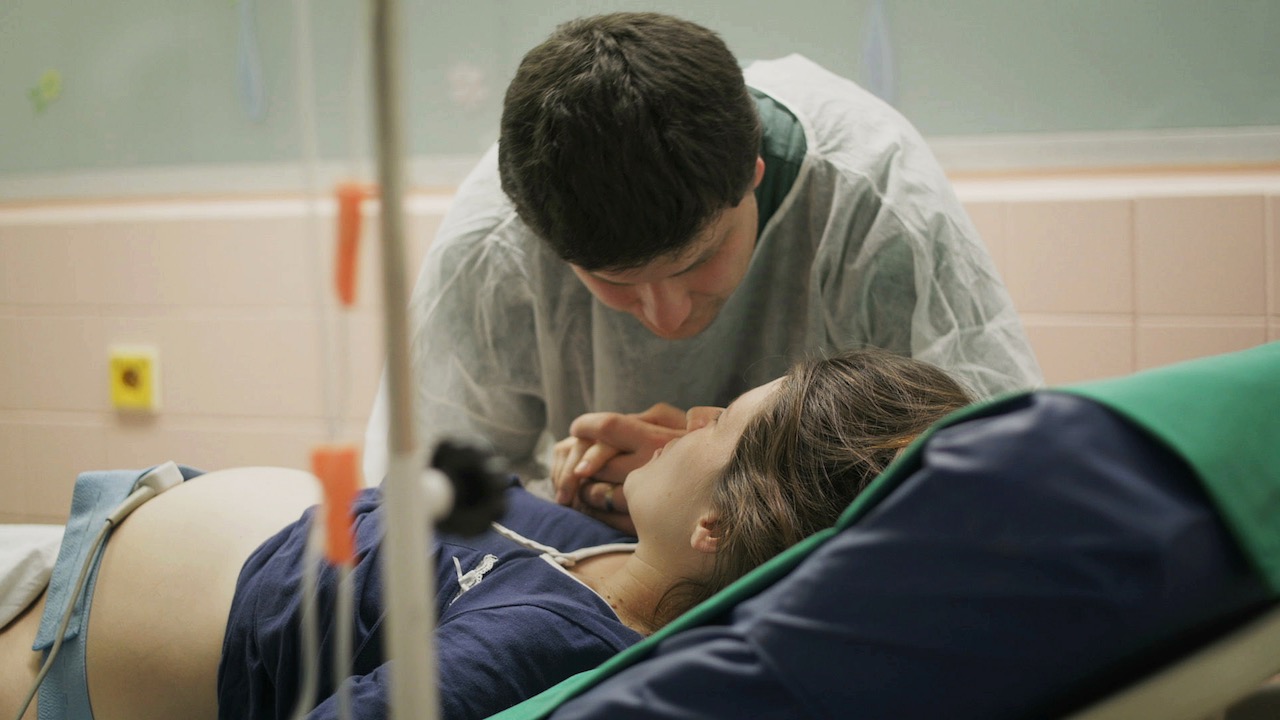

Why should I watch Unseen?
According to the film’s director, the problem in the obstetrics system is not only in Slovakia, and Unseen was therefore not filmed to criticise all health professionals and only in our country. It is the phenomena happening also in other countries on all continents. Maia claims that this primarily depends on whether those in charge of the state/country recognize that this type of violence exists in hospitals.
“I do not want to say that all health professionals are bad, but I think we have let obstetrics in Slovakia go very far – and I deduce this from my many years of observation, interviews with women, and research organizations that have been working on this topic for a long time. The nature of childbirth and the right to women’s mental health have been forgotten. Violence, intimidation, manipulation, ignoring the needs, demands, and even the rights of mothers have been adopted as the norm, and therefore we encounter a misunderstanding of the natural process.
I don’t think the way to go is for women to study and be familiar with everything that happens during childbirth. This should be learned by trained doctors, staff, and midwives. Their role is to help a woman in the birth process, to support her, and to take care of her continuously. Do not rush or use outdated practices that are no longer recommended by recognized organizations such as the WHO or NICE or foreign experts. In Denmark and other Scandinavian countries, they go the most natural way possible – they are taught not to interfere in the birth process, to listen to the woman and her needs, and to intervene only when necessary.
Medicine is a great thing, but it works like a fire – you need to know how to use it properly. We often envy Western countries for what they have, but it is not always about the money. In healthcare, I often hear arguments about material security, lack of finances, space – we can create a lot, even without financial intervention from above. We can make changes immediately and without an order from the Ministry of Health. It’s simply about attitude, respect, dignity. To educate in this field, train other styles of childbirth, other positions, other options in order not to use tools that later cause trauma. Do not shout at women, do not ridicule them, do not manipulate them, do not intimidate them. Do not work in such a way that it is comfortable and fast for the staff, but not in accordance with the birth process of the woman and her child.
In Slovakia, the Ženské kruhy civic association, led by Zuzana Krišková and Miroslava Rašmanová, is currently intensively involved in this topic, often in cooperation with organizations such as Mamila or Občan, sloboda a demokracia. It is crucial that this topic is also accepted by the professional public so that we can move somewhere with the discussion. How a woman gives birth affects the whole course of her life – a relationship with herself, with a child, a partner, a family, her position in society. She can come out of the whole experience as a strengthened person, or as a person who will forever feel pain and sadness. It is up to us which option we choose for her. Processes in Slovak obstetrics often deprive her of the right to mental health and the latest medical procedures.
I want to stop ignoring this problem. That’s why I went into directing and filming with a sincere interest and open heart – to authentically and intuitively show details that violate the rights of women and their newborns, and finally, start solving this problem. That’s the greatest strength of the movie Unseen.”
